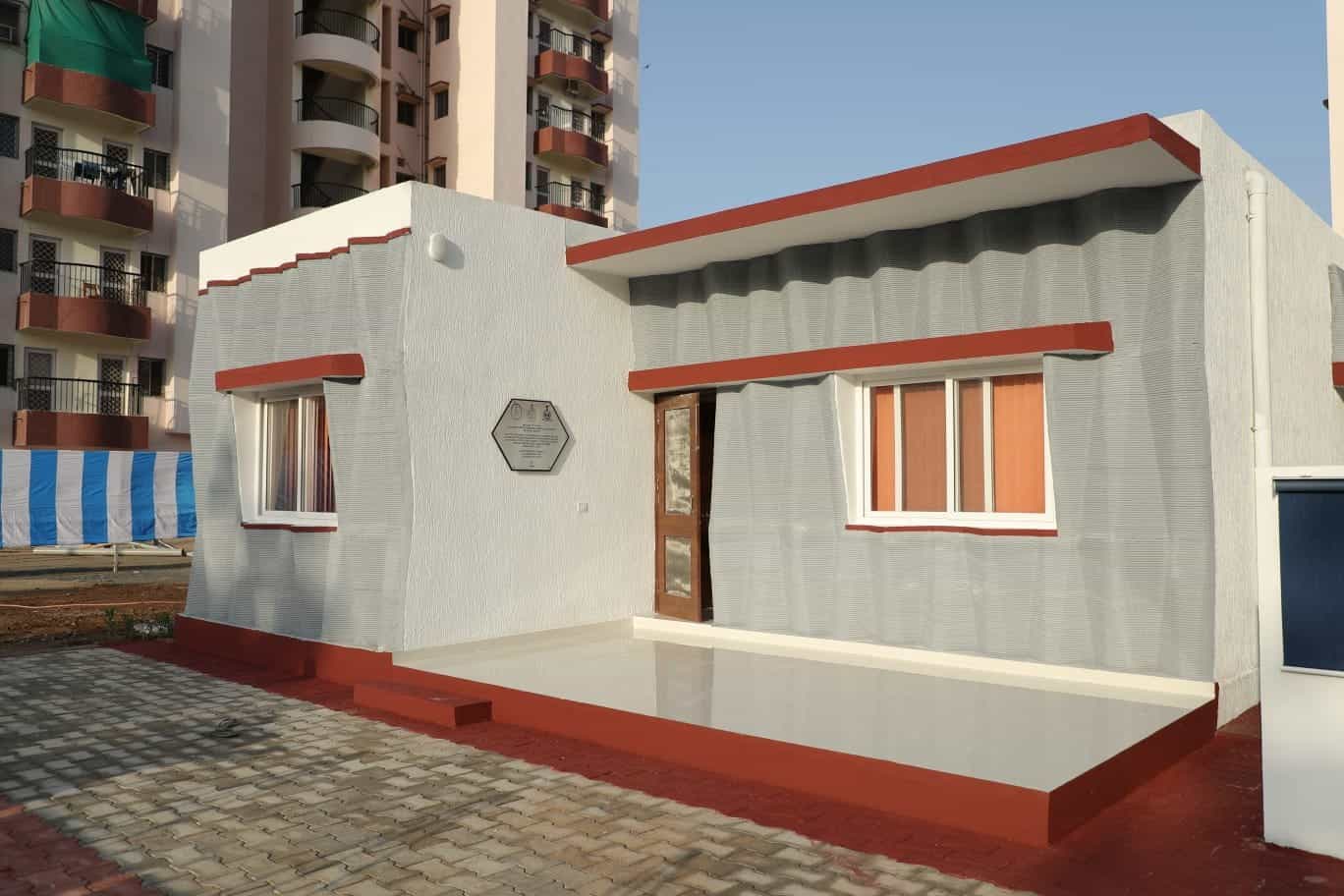Indian Army’s Military Engineering Services (MES) constructed two 3D Printed houses within three weeks using Construction 3D Printing Technology by Tvasta. The 3D Printed houses, constructed in South-Western Air Command in Gandhinagar, are the first-of-its-kind structures in India.
The defence services said that the 3D printed houses are symbolic of the modern-day rapid construction efforts to cater faster to the growing accommodation requirements of the Indian Armed Forces.
“These structures also stand testament for the solidarity of the Indian Armed Forces in fostering home-grown technologies that are focused on indigenization of Defense technologies, as a part of ‘Atmanirbhar Bharat,” the statement read.
Constructed in collaboration with the Chennai based startup Tvasta, each house possesses a built area of around 700 square feet. The disaster-resilient structures are in compliance with Zone-3 earthquake specifications. The MES recently constructed India’s first 3D Printed sanitary blocks with a total built area of about 600 sq ft at Jaisalmer, marking a new beginning for the possibilities of Construction 3D printing in Defense applications.
The chief engineer involved in the construction had visited a number of stations during his tenure and observed that the long gestation period for ensuring housing for soldiers needed immediate attention. He surmised that adaptation of rapid construction technologies was the need of the hour and saw an effective solution in 3-D concrete printing, which can be effectively adapted within available spaces to meet the minimal urgent requirements of such housing.
Subscribe to AM Chronicle Newsletter to stay connected: https://bit.ly/3fBZ1mP
Follow us on LinkedIn: https://bit.ly/3IjhrFq
Visit for more interesting content on additive manufacturing: https://amchronicle.com/


